Read here our extensive guide on Top 10 Most Commone SEO Problems In 2021 that you face and how to solve these issues.
The focus of the modern-day buyers is rapidly shifting to the digital marketplaces from physical stores. While this has become possible with the internet's help, it has become essential to take our marketing endeavor's digital.
In this dynamic and highly competitive world of eCommerce, marketing has taken a new form. While the physical form of marketing still exists, the focus is on the latest digital form of marketing. This unique and more targeted approach comes with an arsenal of various marketing techniques like SEO, Affiliate Marketing, PPC, and paid marketing, to name a few.
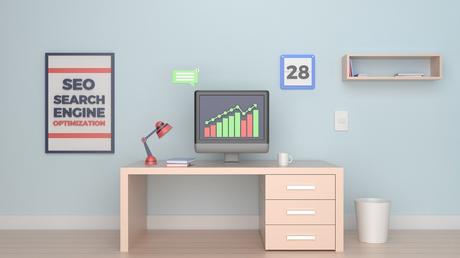
Image Source - Pixabay
Among these various techniques, SEO has emerged as one of the most popular digital marketing techniques, which helps you generate more relevant and unpaid traffic.
While this technique is highly productive, it is relatively challenging to implement.
There are many problems that you will have to face while implementing SEO for your digital stores. To understand these common problems, we need to understand the SEO and the intricacies of SEO in a bit of detail.
What is SEO?
SEO stands for Search Engine Optimization. Search Engine Optimization is a modern-day marketing tool that focuses on better brand placement. Better brand placement leads to a better brand image that helps generate organic traffic for your web portal.
SEO of a website is done by practicing different techniques or methods to boost your popularity through organic search engine results. For the better results in SEO, you need to keep certain things in mind, such as:
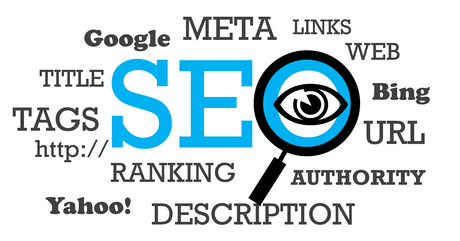
Image Source - Pixabay
Visitors approach your website through Google when they search for a product. If google misdirects a client looking for a different product to your website, there is no point.
This type of traffic holds no relevance if it comes to lead and sales generation. So, the quality of the traffic that visits your website is highly essential.
Suppose you only get a hundred visitors to your website in a month. In such a case, the maximum number of sales that you can get through your digital platform is up to a hundred only.
In another case scenario, you get a thousand visitors to your website. The probability of getting more than a hundred sales is already way higher than the previous case. So, you must get more visitors to your site to have better sales.
Organic traffic refers to unpaid traffic earned through various methods and not bought using money. While buying traffic for websites is common in digital marketing, it is not the most suggested.
It is important to note that you can generate traffic through ads and without paying. Earned traffic has better traffic to sales conversion ratio making it essential that SEO is made a necessary part of a company's marketing strategy.
Importance of SEO
- Search Engine Optimization is necessary for your website to generate more traffic for your website. Optimization is crucial to attracting more visitors and in maintaining the level of your website across the different search engines. The primary purpose of SEO is to generate more traffic for your website from different sources.
- SEO has a vital role to play in online commerce websites. With the proper use of SEO tools, you can generate more traffic and business.
- You can use SEO to build your brand. As SEO is directly linked to online marketing, and there is a vast audience for digital marketing, your brand can get the boost it requires.
- Statistics have proven that an optimized website earns more traffic than a non-optimized site.
- SEO helps the right kind of target audience to reach you. This targeting helps to increase the quality of your traffic.
- SEO boosts your platform's credibility and authority by generating the right traffic for your site.
- It Increases your chances against your competitors, who might not have optimized their website.
- If your website is optimized, the visitor will be able to get the required information more efficiently, which improves the user experience.
- You can better analyze your growth and results using SEO.
Helpful Tips for Search Engine Optimization
You can follow these tips to optimize your website.
- Make your website easily accessible so the search engines can access it and show it in the relevant search results.
- Make your content relevant and up-to-date for the searcher's query to gain user confidence.
- Use specific keywords that a user might search for when looking for information or product that you provide. Google focuses on keywords to search for relevant websites to the search made.
- Make your website fast loading and have a user-friendly creative interface so that the viewer has a good user experience.
- Provide content that can be shared, which will actively promote your website through links and citations.
- You can use many SEO providers that provide packages in which they will do all the work in exchange for payment.
- As easy as it sounds, SEO optimization is not always easy, especially if you are a beginner. There are problems that you run into, which makes it hard and frustrating.
Common Problems Faced during Search Engine Optimization
Facing accidental devaluation on search engines due to minimal and avoidable indexing problems is one of the most prevalent issues facing websites.
These issues can be easily managed and dealt with if we understand the algorithms used by the search engines.
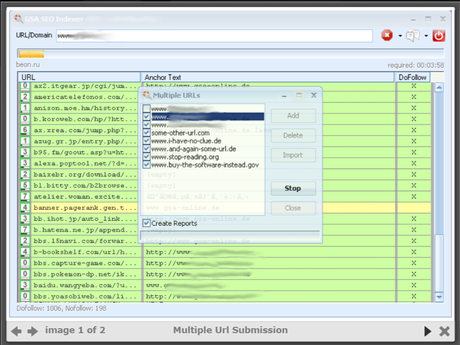
This problem arrives when people simply build links and noindex junk pages, hoping that they will automatically appear on search results.
However, that is not the case. It is seen in many instances in which there were found many pages that did not include noindex tag, which should be automatically indexed by Google does not happen. When you put a noindex tag on a page, you want Google to omit that web page from your crawl index, ensuring you don't pay for it.
But the pages are accessed and charged by the search engine. Even if you correct the noindex, Google cannot make any changes until it recrawls through all the data.
Google is usually able to index 50% of those noindex pages automatically in its search console but can only produce about 1% of the actual data, which leads to devaluing the most of the website. This means you are actively paying for the pages you don't want to be visible.
You can solve this problem by going through the pages you don't want to be indexed and removing them from your crawl budget.
Another common problem faced by the clients is when they have multi-language support. Although having multiple language support is a great way to increase your audience and have international coverage. But it needs to be set up correctly for it to work.
When you use a URL structure for the localized text, you have to set up an HREFLang on their website to work correctly. HREFLang codes depend on the country and language you are targeting. You can get this country and location online. If there are codes that no longer exist or are incomplete, there will be a lot of duplication that needs to be indexed.
Also, there is an Open Graph local set for en_US, which includes pages that are not in English initially. This is an important setting that provides Google with information on locale, which ends up creating confusion if not set up correctly.
A common issue faced by users is that when multiple pages on their website have the same keywords. When searched for that keyword, these pages will compete against each other in the results, which causes issues and fewer results just like cannibalization.
When different pages of your website fight for the same keywords, your rankings on Google get affected.
You can avoid this issue using these steps:
Tracking the Keywords
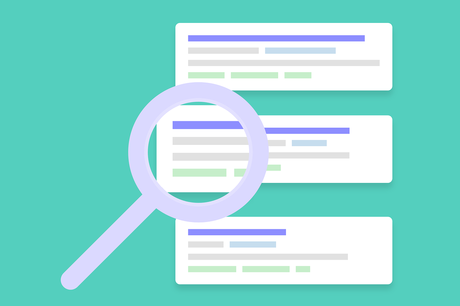
Some platforms provide tools that help infrequently tracking the keywords.
These platforms will lookup for the keywords that are commonly used throughout your site and give you the information to adjust those keywords. These tools also allow you to track the success rate of your keywords.
Anchor text is the highlighted text that is easily accessible to visitors and helps increase website traffic. Sometimes websites end up misusing this anchor text. Some of the categories are below:
- Branded - This type of anchor text contains the brand name that you represent. The brand name is used either directly or in any number of slight variations.
- Generic - This method uses everyday words, but imparts them additional value.
- Miscellaneous - Sometimes, unknowingly, websites might use anchors that have no relation to the site. These are usually generic names.
- Low Quality - Using fancy symbols, foreign characters, or unnaturally long character strings as an anchor decreases the quality.
- Targeted - Some websites try to use their search words as part of their anchor to help the page gain more traffic. But this gamble may backfire as many filters then tend to block that site.
- Topical - Another widespread mistake is when you may use terms closely related to your topic of interest, but are not the same. Using these words may seem like a good idea, but the ratings deny that claim.
- URL - Some sites use the website addresses or an URL. This usage of URLs and website addresses is the worst idea possible.
When any website repeatedly shares high-quality content, it will have higher customer metrics and search rankings. Lining to a well-ranked page will provide greater benefits as it will help your ratings improve quickly. This benefit can easily be obtained by ranking with a few top sites, rather than the thousands otherwise necessary to increase rankings.
The high number of links then face the risk of being prevented by the filters that Google or other such search engines are equipped with. Using better content will help you gain a better rank permanently and avoid being flagged by the filters.
Developing such a holistic method for ranking strategy is the best method to reach the top and maintain your position at that location. Some of the main points to remember is:
- Avoiding over-optimized anchor text instead of having a combination of branded and topical terms
- Using quality content like blogs or posts inside and outside your website to link to your sites
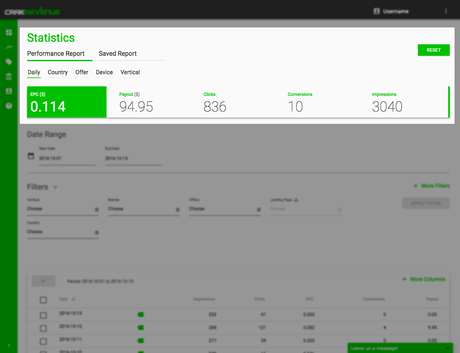
Since the traffic that visits your websites are those individuals interested in your product, the data obtained is crucial. The best way to generate long term growth would be to help convert the visitors to your site, rather than attempt to obtain more links and ranks through other means.
The enhanced content and better traffic conversion will help you to obtain higher ranks. Consistent top ranks help to ensure that your website is ready to help your business grow and expand, impacting your potential site traffic.
Pillow links refer to the primary links you create when you are starting to develop your web presence. This is the time frame when you begin to build your website for your business or brand. These links generally direct to the website homepage. These pillow links come in very handy when you are trying to establish your social media presence.
If we refer to the audio industry, they use a ratio of signal-to-noise. This ratio is similar to the anchor text ratios, which the pillow links diversify. Low noise and a high signal is the preferable customization of a microphone. However, it is entirely the reverse of what is needed in SEO profiles.
If you want Google's algorithm to pick up unique trends from your website, and analyze your website's links, your link profile must have high signal and low noise. Consider the dithering process where you increase the level of noise to escalate the quality. The pillow links can be compared with the dithering in this sense.
Consider building over a hundred of pillow links and only getting 35 of those links indexed by Google. You will have wasted a lot of time and effort on something hard of any use. Well, this can be a big problem.
The only solution to this problem is to use indexing tools. These indexing tools will drive Googlebot to index the pillow links that you define. Additionally, you can build all links to be of high quality to avoid this problem altogether.
You must use the correct redirect links on your website. Having excessive or wrong redirecting links on your website can be a problem. Having a large number of redirecting links on your website can increase the website's latency, making the site slow.
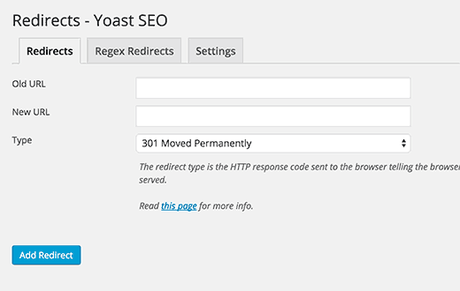
There are various types of 3XX redirects. However, the most common redirects that websites use are 301 and 302 redirects.
A 301 redirect comes in handy when a user wants to access a page on your website, which is no longer available. This generally happens when the link has permanently moved to another location. It is important to note that this is a regular occurrence across the internet. Whenever there is a latency moment, the server will return a different URL than the one you requested.
However, even if the URL that comes back to is different from what you want, the web page still loads as it should.
Most of the webmasters generally ignore this issue of latency. However, the physical difference between your location and that of the server means that it takes considerable time to transmit little information like small headers.
To enhance your website's end-user experience, you need to optimize the speed of your website and its performance. This website speed can be enhanced by removing all the optional 301 links from your website, which are not just to have. Removing these links from the website will enhance the end-user experience, and they will be able to navigate on the site more freely at a comparatively quick pace.
All this is fine. You can remove the 301 links from your website to expect a quicker performance speed. However, if you must wonder about the difference between 301 and 302 links, here is a brief answer.
Three hundred one links concentrate on the permanent move, and 302 focuses on the temporary move. This essentially means that 301 link redirects index newer URLs while 302 link redirects index older URLs.
While Google claims to handle both 301 and 302 links, the reason for this is still unknown. Both of these redirecting codes are useful for different purposes. These different purposes of 301 and 302 links make it important that they are treated differently according to their use.
Meta Description refers to the 160 character summary that is visible in the search results and your website. This summary helps viewers understand the relevance of your website, impacting the traffic on your website.
However, It is still unclear if properly defined meta description helps in search engine optimization or not. In a statement that came out in 2009, Google mentioned that meta description does not impact the SEO and rankings of the website on Google.
However, it is worth noting that the meta description shows in the search results. Hence, the meta description impacts the clicks that you receive on your website. While, in theory, meta-description does not affect your website rankings and search engine optimization, it does in practicality.
While SEO seems to be around for quite some time now, many mistakes are still made while defining the meta description. Let's look at some commonly made errors while defining the meta description of a website.
- Small length meta description (below 70 characters)
- Too long meta description (above 130 characters)
- Copied or duplicate meta description
- Irrelevant information in the meta description
- Does not highlight your USPs
- Contains no trigger or keywords
- Too complex to understand
These are some of the basic mistakes that impact the meta description of your website. By considering these points, you can make sure that your meta description is up to generate more traffic for your website.
Good quality content can become the difference between success and failure if it comes to any aspect of digital marketing. The problem that SEO faces with affiliate content is that it is often of poor quality without essential keywords, which are pivotal in bringing traffic to your website.
Excellent content can bring more visitors to your website. A customer is more likely to click on a link that shows more relevant information than the other. It is a common belief that a large number of average posts can overpower a low number of quality content posts.
However, this is not the case. More traffic flows to the website, which has better quality content rather than average quality additional content.
The content that you post must be not only of high quality but also relevant. It must also contain the keywords which are the key instrument of flowing traffic to your website.
Additionally, the content needs to be of perfect length. A tip for you, the top-ranked posts on Google, averages around 1800 words. Also, including an image and some external outbound links can be of great help in helping your content rank higher.
FAQs:
Conclusion: Most Common SEO Problems In 2021
While it is important to include SEO as an integral part of your digital marketing strategy, it's efficient implementation is equally important.
One wrong keyword here and too long meta description there can disrupt the efficient functioning of your website by directing an irrelevant audience. While you can only be too careful when it comes down to SEO, you can use the tricks mentioned above to avoid the most common mistakes.
These mistakes are committed even by the most expert digital marketers and SEO specialists, making it imperative that you be cautious throughout.

